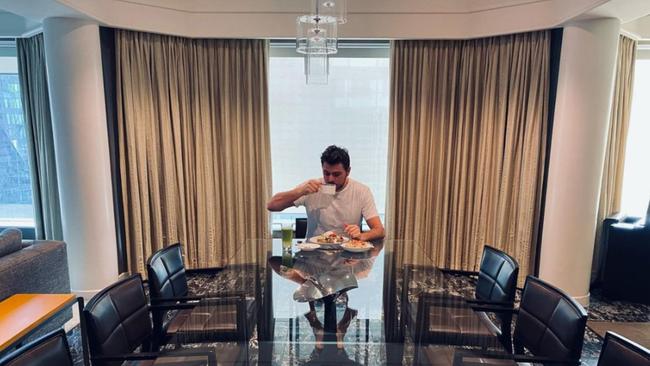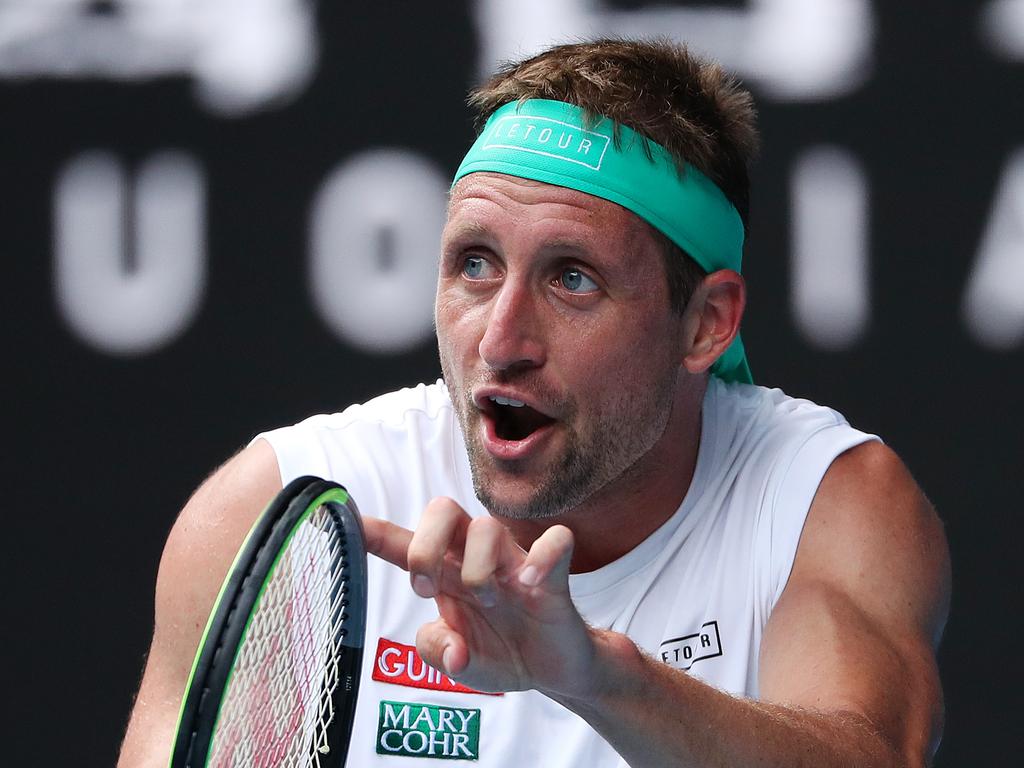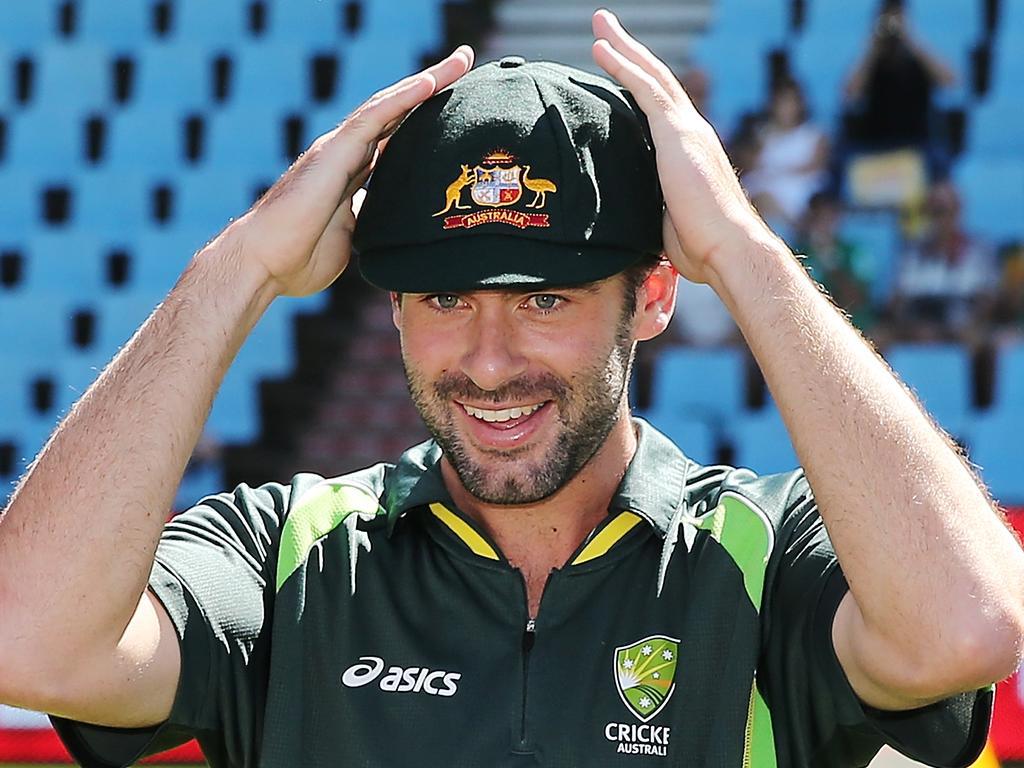Handling of crisis engulfing Australian Open should bolster public confidence
The Australian Open preparations of 47 competitors are in disarray but it is reassuring health authorities are taking no risks.

There is a silver lining to the blaze of controversy sparked by the arrival of more than 1200 people for the Asterisk Open to be held at Melbourne Park next month.
Dozens of players are in lockdown and unable to train, forced into strict quarantine on Saturday after being identified as close contacts of coronavirus carriers.
But while the situation is far harsher than Tennis Australia and those caught up in the debacle anticipated, it is still a long distance from what would be the nightmare scenario.
The greatest fear for those who have arranged and given the green light for an Open that will always carry an asterisk is that a member of the travelling party would spark an outbreak in the general community.
It will remain a risk for the entirety of the quarantine period. Nerves are fraught and tempers are fraying among players, while the public’s sympathy and tolerance is in short supply. Fingers are crossed.
The whining from some quarters, although understandable and likely to worsen as the reality of their predicament sets in, is receiving short shrift from the broader public wondering why they are here at all.
Players may not have anticipated the prospect of widespread quarantine but it was a possibility listed within the guidelines they agreed to.
The emergence of the UK-variant of COVID-19 prompted health authorities to rethink their approach to the social-distancing measures put in place by Tennis Australia on planes.
Some have not helped themselves. A social media post made it clear at least a couple of players, one a dual-major winner, opted against wearing a mask on one of the flights for at least part of the journey.
A journalist on another flight noted others were wearing masks around their chins.
Worn incorrectly, masks are scarcely a fashion accessory, let alone an effective precautionary measure.
But what the events of the weekend make abundantly clear is that health authorities are determined to minimise risk at all costs, irrespective of the circumstances.
As they should. Their first responsibility is to protect the Victorians, who have already lived through a harsh four-month lockdown, from another outbreak stemming from quarantine.
If anything, the drastic move to classify anyone on the flights from Los Angeles and the Middle East as close contacts should bolster public confidence in the protocols.
No exceptions have been made for any player, regardless of their status, nor their distance from the COVID-19 carrier.
Everyone from dual-winner Victoria Azarenka and reigning champion Sofia Kenin to doubles specialists including Santiago Gonzalez has been treated the same in terms of the medical process.
Not surprisingly, the complaints have come swiftly from some competitors who lack a broader perspective.
One hysterically noted her room had a mouse. Another said the accommodation was scarcely world class. Others are upset about the food options.
Thats the fastest mouse I have ever seen! https://t.co/hghD3cpgOt
— Reilly Opelka (@ReillyOpelka) January 16, 2021
But when the cost of flights to Australia and their quarantine have been covered and singles competitors are guaranteed a $100,000 cheque for competing in the Asterisk Open, it is trickier to mount a case of being hard-done by.
The premise that those affected are now at a significant disadvantage cannot, of course, be challenged.
No matter their talent or reputation, their hopes of being competitive at Melbourne Park are severely compromised and their chance of injury enhanced.
One Austrian doubles player lamented that from his hotel room he will be able to see prospective opponents honing their games at Albert Reserve while he is stuck in isolation.
But there was already a case of unevenness in terms of the conditions for players competing in the Asterisk Open.
The superstars in Adelaide, which include Novak Djokovic, Rafael Nadal and Serena Williams, have paid extra money to bring additional staff members to Australia.
Effectively, they were able to secure spots for physiotherapists, publicity agents and coaches made available when their lower-ranked and less well-off rivals declined the option.
That is among the advantages experienced by those preparing at Memorial Drive ahead of the star-studded exhibition later this month.
In the sporting competitions completed in Australia during the pandemic, those who have handled the conditions the best are the ones that have succeeded.
Given the unevenness in preparation, that does not apply for the delayed summer of tennis. But those who maintain their mental health and strength might yet manage to make a splash.
Former US Open finalist Pam Shriver advised those stuck in their rooms to figure out a way to train, stating they should embrace mental imagery among other practices.
Within hours Uruguayan Pablo Cuevas posted footage of him thumping a tennis ball into a mattress resting against a wall.
It is not ideal. But nothing about the pandemic is. At least Cuevas has grasped something to occupy his mind and keep the blood flowing.
It is an example of inventiveness and ingenuity others should consider before tweeting out a complaint.
More Coverage
Who said that players aren’t able to do practice? 🎾
— Luca Fiorino (@FiorinoLuca) January 16, 2021
Instagram 🎥 @PabloCuevas22 pic.twitter.com/KmIbiRHWvE








To join the conversation, please log in. Don't have an account? Register
Join the conversation, you are commenting as Logout